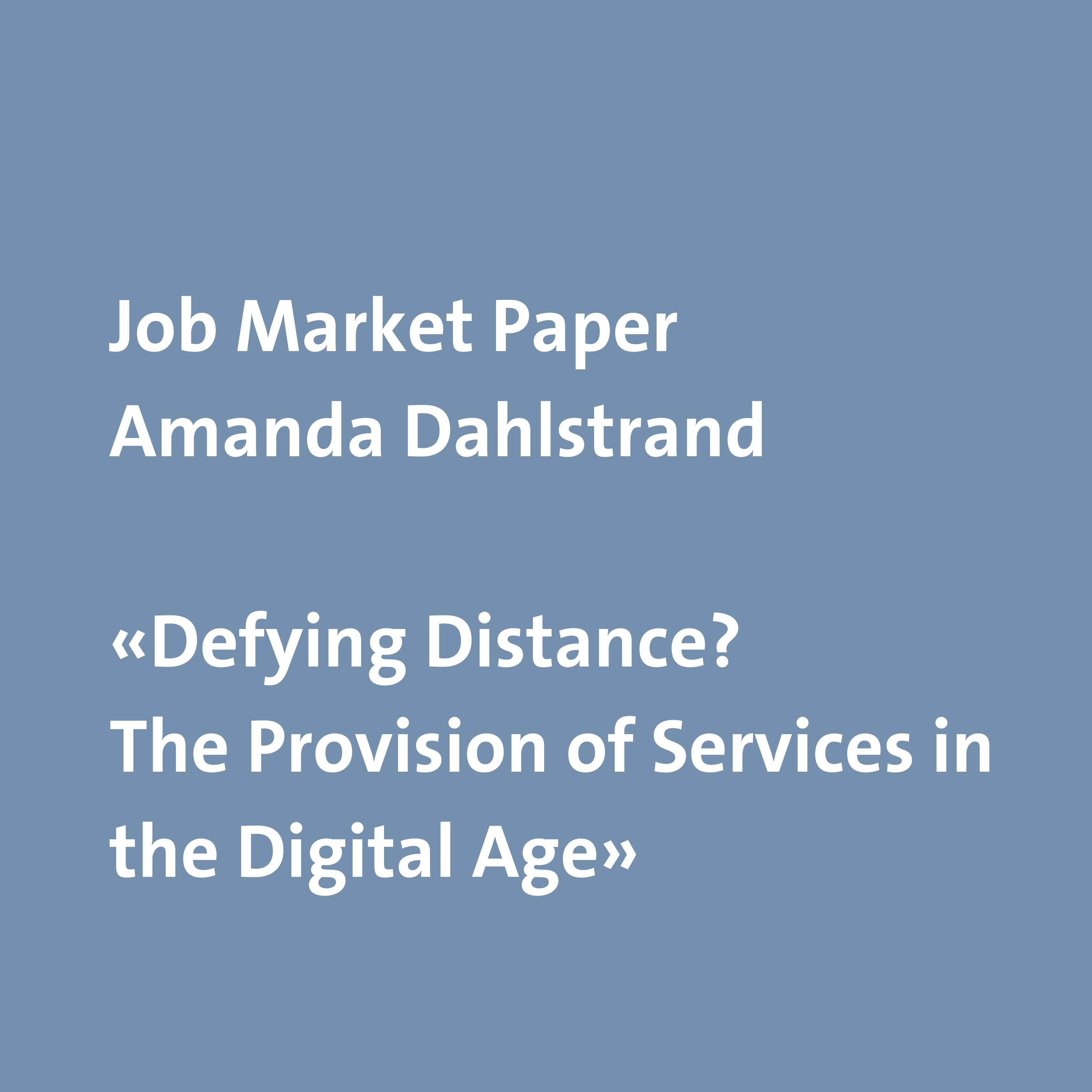Five questions to: Amanda Dahlstrand
Amanda Dahlstrand joined the Department of Economics as Assistant Professor of Applied Microeconomics in July 2023. Amanda works in the areas of organizations, labor and development, with a focus on health and inequality within those fields.
(4).jpg)

Amanda, what are the topics you are currently working on?
I’m working on the topic of remote services from different perspectives. Many services, such as banking, therapy, worker training and healthcare offer online options, but we have limited evidence on the results. Currently, I am working on a study that compares the outcomes of in-person and online services to understand the implications of digital medical appointments. Are they more cost effective than in-person appointments in the long run? To do this we use an instrumental variables design to compare similar patients who had in-person or online care.
What is the main finding of this work?
In the ongoing study, we find that online consultations are quicker and involve less waiting, and the outcomes of the meeting such as diagnosis, prescriptions, referrals, and satisfaction are similar to in-person consultations. But importantly, we also study what happens after the consultation. We find that online consultations lead to more in-person follow up appointments, both in primary care and in the Emergency Department. Online consultations may be cheaper at first, but if we include the costs of the additional follow-ups, they end up almost as expensive as in-person consultations. However, in another paper I study benefits you can achieve from online services in terms of matching providers and users.

Is there another important paper of yours that you would like to mention?
Yes. We published a paper in the Journal of Political Economy that explores ways to improve the living conditions in urban slums in Africa. Infrastructure laid out in informal slums often deteriorates. We found that laying out basic infrastructure i.e. water and roads along with formal property rights in undeveloped areas outside the city and encouraging people to move there crowds in private investment and leads to better housing. We followed the development of such areas over 40 years with satellite images, maps and survey data and saw them evolve into proper neighborhoods.
You have recently joined UZH, what motivated you to come to Zurich?
The University of Zurich provides an excellent environment for being productive in research and the colleagues at the Department seem smart and nice, not forgetting the intelligent students. Besides, I really love the city of Zurich.
Who inspires your work?
I would like to mention Amy Finkelstein and Marcella Alsan. Both have written remarkable papers about healthcare and inequality and ever since my PhD years, I've read their papers and built on their work. When I was a postdoc in the US, I was fortunate to meet them and learn more from them.
.jpg)
